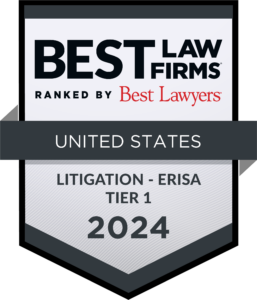The Internal Revenue Service (“IRS”) recently issued Revenue Ruling 2003–102 which allows a Health Flexible Spending Account (FSA) or a Health Reimbursement Arrangement (HRA) to reimburse participants for expenses incurred for eligible non-prescription medicines and drugs, subject to certain limitations. Revenue Ruling 2003–102 states that Internal Revenue Code (“Code”) section 105 (which provides that certain employer reimbursements for medical expenses are excluded from an employee’s income) does not require that medicines or drugs be prescribed by a physician in order to be excludible from an employee’s income as an expense for medical care.
This is good news for many plan participants because once drugs such as Claritin® and Prilosec® that were formerly available only with a prescription become available over the counter without a prescription, many health plans will no longer cover them. In fact, we have heard that numerous health plans that provide prescription drug coverage will not cover prescription drugs that are in the same category as the drugs that have become available over the counter. As a result, many plan participants are finding that their out-of-pocket medical expenses are increasing because they must pay the full cost of the drug instead of paying a small (e.g., $10) copayment.
Reimbursable Non-Prescription
Medicines and Drugs
In order to be reimbursable from a Health FSA or an HRA, the non-prescription medicine or drug must be for “medical care” as defined in Code section 213(d). This Code section defines “medical care” as “amounts paid for the diagnosis, cure, mitigation, treatment, or prevention of disease, or for the purpose of affecting any structure or function of the body.” Thus, a non-prescription medicine or drug is for “medical care” if it is needed to treat a medical condition and is generally accepted as falling within the category of “medicine or drugs.” Revenue Ruling 2003–102 specifically lists antacids, allergy medicines, pain relievers and cold medicines as examples of reimbursable non-prescription medicines and drugs.
Substantiation Required
The rules regarding substantiation of reimbursable expenses have not been relaxed as a result of Revenue Ruling 2003–102. Therefore, in order for a non-prescription medicine or drug expense to be reimbursable from a Health FSA or an HRA, the participant must provide sufficient proof of the expenditure. Participants should be advised that they will need to shop at stores that provide sufficient details on the cash register receipt. The substantiation must identify the name of the non-prescription medicine or drug that was purchased. In addition, in some cases, the plan administrator (or the plan’s claims administrator) may also need to ask the participant for substantiation of the reasons the medicine or drug was purchased (e.g., in situations where the non-prescription medicine or drug could be taken both for general health and to treat a specific medical condition). The plan administrator (or claims administrator) will then need to determine, in light of the relevant facts and circumstances, whether the non-prescription medicine or drug is actually for “medical care.”
Non-Reimbursable Expenses
Revenue Ruling 2003–102 provides that items which are merely beneficial to the general health of the individual are not for “medical care” and, therefore, are not reimbursable from a Health FSA or an HRA. This would include expenses for dietary supplements (e.g., general vitamins, herbal supplements, energy drinks, energy bars, etc.), toiletries (e.g., toothpaste and toothbrushes, mouthwash, dental floss, soaps, deodorant, non-medicated shampoo, etc.), cosmetics (e.g., wrinkle cream, moisturizers, makeup remover, etc.), and items used for cosmetic purposes (e.g., Propecia®, Rogaine®, teeth whiteners, etc.).
Smoking Cessation Programs and Products
Revenue Ruling 2003–102 does not address smoking cessation programs and products such as nicotine patches and nicotine gum that are used to alleviate nicotine withdrawal. Revenue Ruling 99–28 previously held that amounts paid for certain smoking cessation programs and for prescription drugs to alleviate nicotine withdrawal were deductible medical expenses under Code section 213. Revenue Ruling 99–28 also indicated that nicotine gum and nicotine patches are medical expenses under Code section 213(d), even though these items were held not to be deductible because they did not require a prescription. Therefore, it would appear that the costs of non-prescription nicotine gum and nicotine patches would be reimbursable medical expenses from a Health FSA or an HRA under Revenue Ruling 2003–102.
Effective Date
Employers who sponsor Health FSAs or HRAs should review their plan documents and summary plan descriptions to determine if this ruling may be applied to their plans as of the beginning of the current plan year. The IRS has indicated that this is not a change in their position, but an interpretation of existing law and thus may be applied retroactively. As long as the plan document does not specifically exclude coverage for non-prescription medicines and drugs, such expenses may be reimbursed for the entire current period of coverage.
No Permitted Change in
Cafeteria Plan Election
Treasury Regulation section 1.125–4 sets forth the events that permit an election change under a Code section 125 Cafeteria Plan. The IRS’s issuance of new guidance is not an event that permits an election change. Therefore, participants (or eligible employees) generally may not change their election to encompass the effect of this new IRS guidance until the next annual enrollment period.
Participant Questions
Our clients who are plan sponsors and third party administrators of Health FSAs and HRAs have already been deluged with questions from plan participants regarding what non-prescription drugs and medicines are reimbursable under this Revenue Ruling. Unless and until further guidance is issued from the IRS, only amounts paid for non-prescription drugs and medicines that qualify as “medical care” (i.e., they are used for the diagnosis, cure, mitigation, treatment, or prevention of disease, or for the purpose of affecting any structure or function of the body) may be reimbursed from a Health FSA or an HRA.




